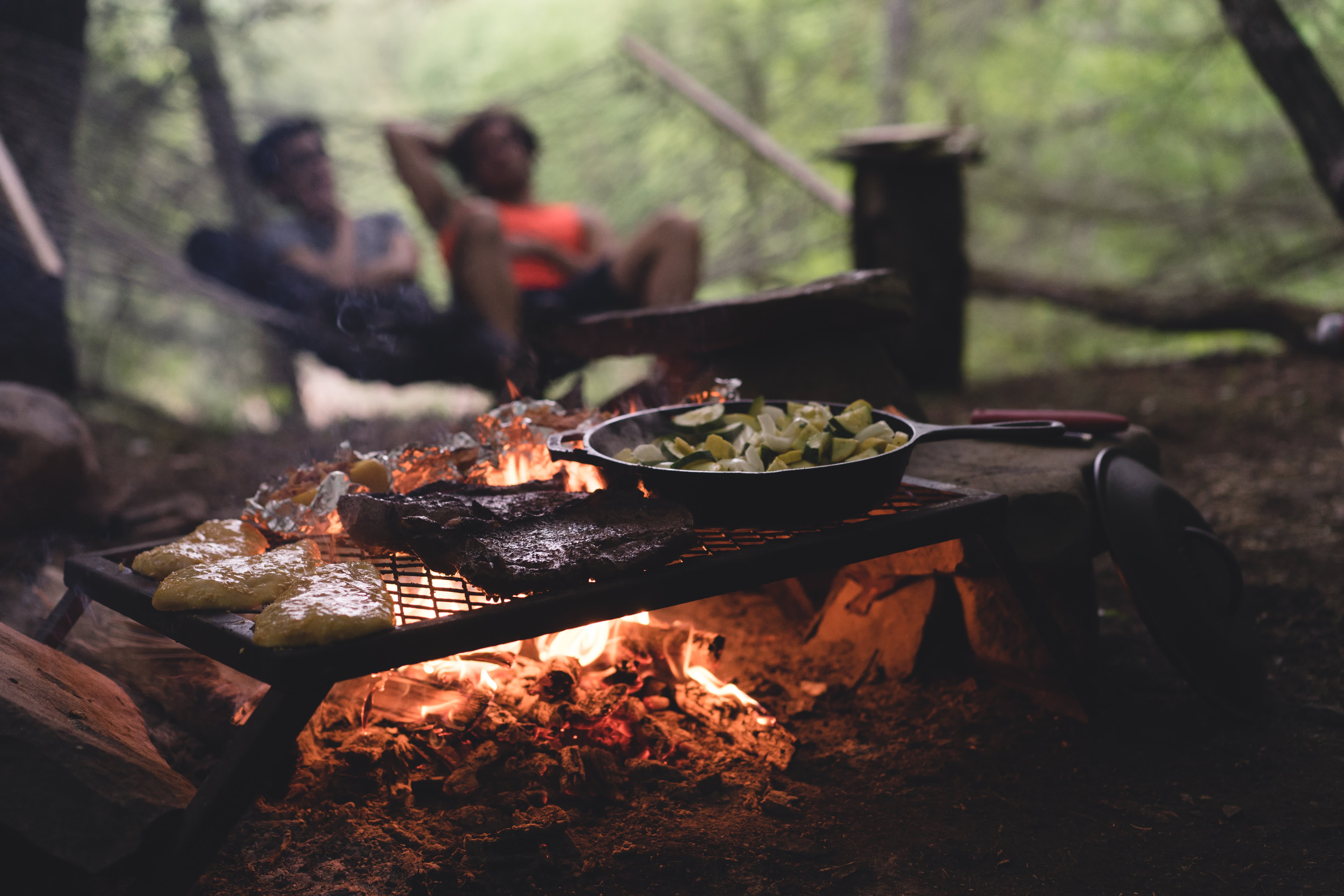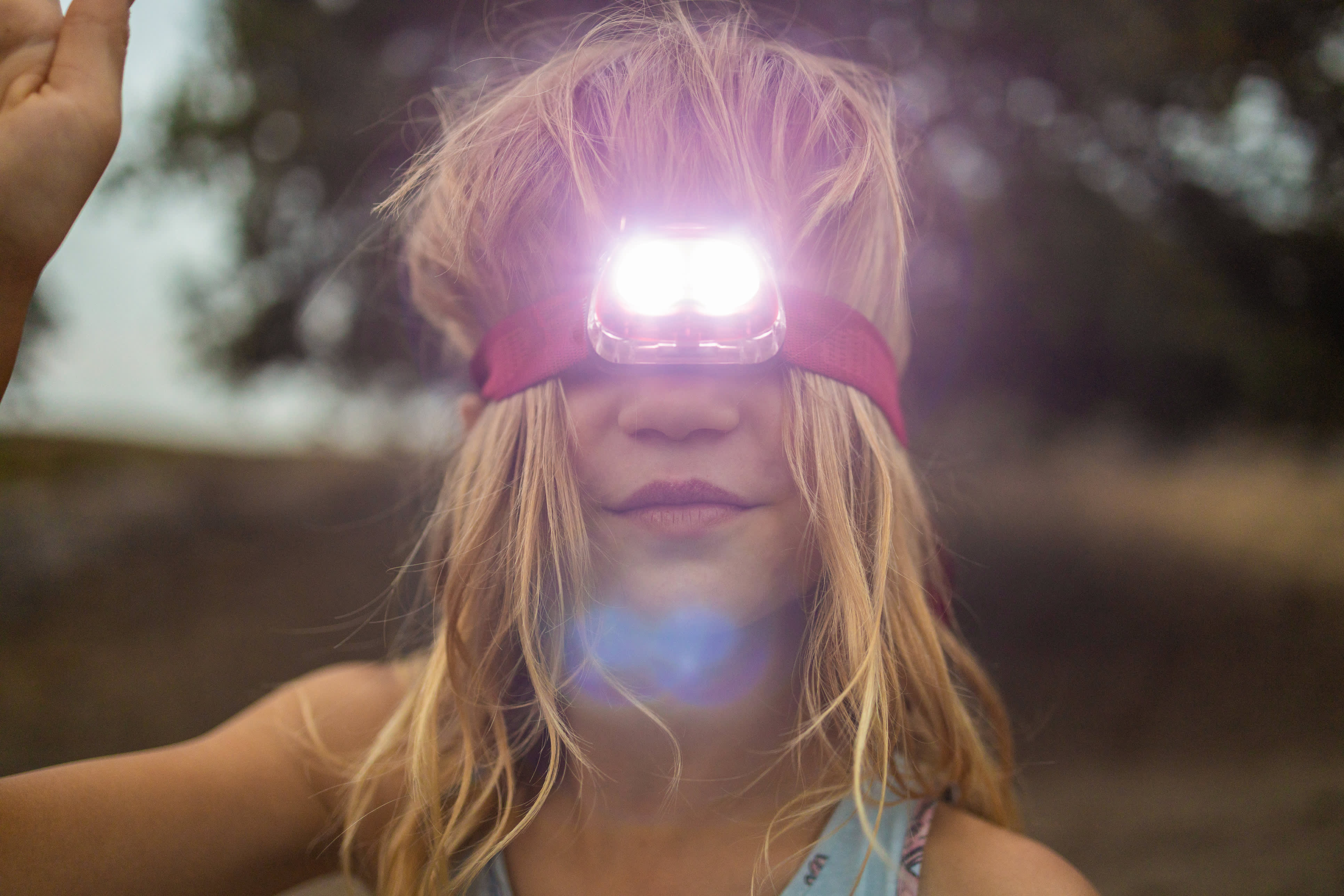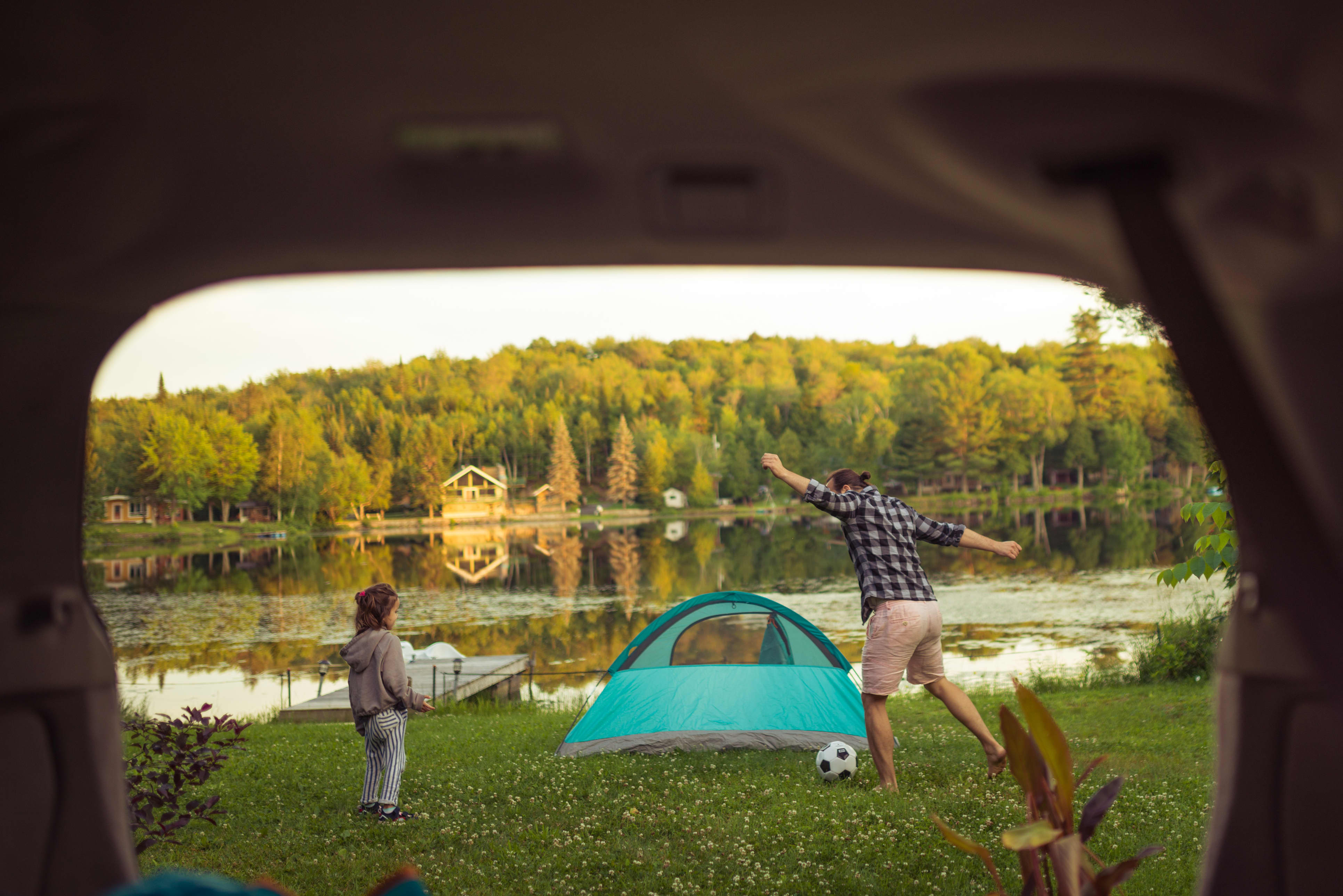
Camping Checklist: what to take when you go camping
Camping is the new cool. If you were not a camper in your pre-Covid life and have an image of what you think a campsite is, then let me tell you, it is not all retirees wandering around the glades in open-toed sandals waving a fish slice. Camping is more than just a holiday; it is a lifestyle, a wild adventure, an experience, a digital detox, family time, alone time, quality time with friends. It is Covid secure because you take your own home. It is back to basics relaxation; all you need to focus on is building a den, making it comfortable, cooking good food and sitting back to enjoy it. You can camp beachside in Cornwall, mountain side in Scotland, lakeside in, well....The Lakes. The place you pitch your tent is where your holiday starts.
Let's give the UK tourism industry a boost, let's be kinder to the environment (staycations are a no fly zone) and let's get holidaying properly in the British Isles. Let's get camping. If you don't have all the gear, borrow some while you get into the swing of it and then head down to TentsRU and invest in a few things. You don't need the whole caboodle, but it does help if you are comfortable, warm and haven't left the tent at home. So, if you haven't camped before, here is a checklist to help you a little a bit, and if you have camped before, you can guffaw heartily about all the things I've left off.
Food and Drink

Food and Drink - Featured accommodation
When I said 'back to basics', I did not mean running into the forest with a pack of darts and a fork and trying to catch your own dinner. It's all about the prep. Take a large cool box with you (electric plug in ones are brilliant but if not, the regular ones are fine) and pack some of the food still frozen, so it defrosts gradually and lasts longer. If you can't take it frozen then pack it chilled - this will keep food cooler. Chop anything tricky in advance. Use long life milk so you don't take up valuable cool space. Take a small spray rather than large vats of oil, and where you can, mini condiments so they don't use up too much room. Plastic bags, plastic boxes, foil and cling film are useful to keep open food fresh.
Plan your meals before you go so that you know what you are eating and when. It sounds fussy but it will make your camping break way more relaxing. Pack a utensils box: knives, forks, spoons (wooden ones too), spatula, scissors, can opener, tongs, bottle opener, peeler, meat thermometer (inexpensive and peace of mind for the nervous bbq-er), bowls, plates, chopping board, pans, cups, mugs. And most importantly, a kettle.
If are are taking a BBQ or camping stove take extra gas canisters; if you are going for the campfire option, take matches and firelighters. You can usually buy wood at campsites but check beforehand.
Campsites provide drinking water but you will need to take a decent sized water carrier so you don't have to keep going back and forward to the tap. They fold down flat and come with a small tap to make dispensing water very easy. If you are going wild camping, take water purification tablets.
If it all goes haywire on the food front, follow these simple rules: march straight into the campsite reception, demand the location of the nearest pub, run there at speed, and order a pie, chips and all the trimmings. But I'm sure that won't happen.
The Light Situation

The Light Situation - Featured accommodation
Everything looks completely different after the sun goes down. Night time can be one of the most exciting parts about going camping, as long as you are well prepared in the lighting department. No one wants to be attempting to cook chicken legs on a barbeque by sound and smell alone. So before nightfall, set up your camp to make sure you have a good amount of light, without floodlighting the place and annoying your neighbours. Soft lighting is the word here. Lanterns which clip on inside and outside tents are great, plus battery operated fairy lights look very pretty if you want to go the extra mile. Make sure you have torches for everyone - head torches are great for toilet trips and when you are cooking; they have the added benefit of being quite tricky to loose while strapped to your head.
Avoid the classic tripping over the tent in the dark debacle by placing small solar powered stake lights near to prominent ropes and pegs. They are very cheap to buy and stick into the ground like a peg to mark the way.
Important extras

Important extras - Featured accommodation
games: indoor and outdoor. Football, frisbee, bat and ball, cards, board games, crosswords, drawing things, any other hobbies. If you are near water, then wetsuits and floats. Buckets and spades for beaches.
battery packs for mobile phones. It is great to get away from all things digital, but for emergencies if nothing else it is good to have your phone. Make sure you can charge it.
Porta-loo. I know this sounds like a step too far and there is usually a good toilet block within staggering distance. But for those night-time toilet trips, having your own is an added luxury, plus it makes the whole thing even more covid-safe. You can put the portaloo in its own pop-up pod away from the main tent so that your toilet experiences are NOT shared with the group. No one needs that.
packs of antibacterial wipes / antibacterial hand wash
bin bags
Collapsable washing up bowl, fairy liquid (campsites often have this, but with the pandemic restrictions better to take your own), scrubber and tea towels.
small medical kit (note: that does not mean gin. Gin comes in the large medical kit)
brush to sweep out the tent
strong tape to fix any canvas tears
Really importantly, when you head home and pack up, leave your pitch exactly how you found it; recycle and clear all your rubbish and make sure you leave nothing behind.
Once you have all your things ready to go, think hard about where you want to go on holiday and what kind of campsite suits you and the gang you are going with. Do you want an off grid, wild camping experience in woodland? Or a lively campsite with playgrounds, cafes, amusements and amenities. Do you want to be on a working farm with lots of animals to meet? An activity holiday, a beach holiday, a cycling holiday or a sightseeing holiday? If you want to go to a campsite where all food is catered for, you can. When you go camping, you can choose any kind of holiday you want. The thousands of campsites across the UK offer things suited to every taste and budget. The tricky bit is choosing which one....
Experiences:
Related Experiences
Camping and Glamping Experiences
Find exciting camping and glamping activities and experiences. Perfect for adventure seekers and families.

